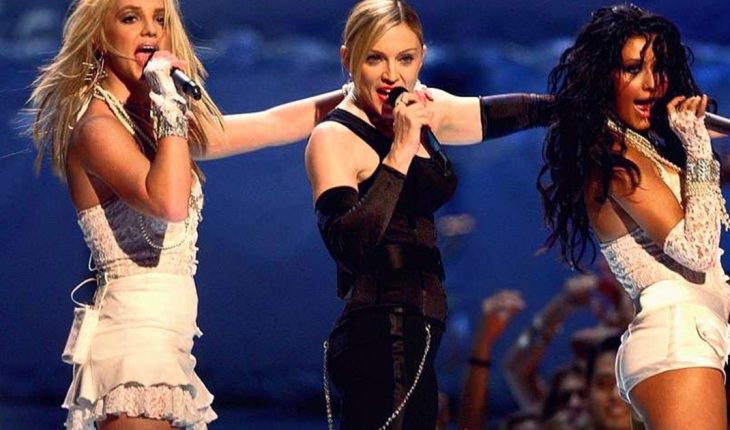Violence, sport, science, electricity, construction, math, setting a fire, having a group of friends. Typical characteristics of all that is to be a male in this world divided by only two genders. They are not peacocky, all these issues that were always related to them took us a long way from our own survival and generated such a dependency that many, still, live their lives as women as a prison. Nor is the temita of friendship pavada, because through friends, secrets and benches, gatherings in bars, roasts or fulbito, they cope with the rest of the things that are a lot. Because whenever I talk about men this or men that, it’s because I also understand that being a man in this world brings with it a lot of labels that are also oppressive. But at the same time they have many privileges, in reality, rights denied to us. Such as friendship. I’m not going to point out that “Friend’s Day” doesn’t include us because here the problem of inclusive language is almost secondary or at least it’s not where I try to focus this note. I’m interested in expressing how the friendship between cis women or trans or non-binaries was transformed over time and also contextualizing, because none of everything we are is chance but, perhaps, just survival.
There is a moment in our life that is when we realize that everything we go through, suffer, make us self-relent or afraid of, does not happen only to us, to our friends as well. And that’s when friendship takes on another meaning. Because in addition to saving you when you are very sad or happy when you are very happy, friendship is also a place of trust, something that no one ever told us. I am 35 years old, my generation grew up believing that true friendship, at least group, is between them. That women are vipers with other women, that we can’t trust too many friends, that they go out with the kids and play or take birra and have fun and that we, in reality, get together but to get cute, that we get cute just for them and that on top of that all we talk about is them. A great deal can be said about friendship between women, but I am interested in rescuing this little detail of the dialogue. Of the word. Because the word is the opposite of silence, it is when it breaks, breaks and options and tools appear. When silence is broken, access to information is born. And that, my dear friends, is what the feminist movements achieved in all these decades of struggle. May we verbalize our experiences as women in this macho world. That we can express the injustices or the things that most frighten us to organize ourselves and change our existence in some way. For centuries we lived apart, inside our homes, raising children and cleaning bathrooms. We saw each other with very little of us and in general, if you were lucky and well placed economically, the gatherings were in scheduled activities wave sewing or painting. We weren’t allowed to talk about sex or complexes. It was frowned upon for us to drink alcohol, smoke and, ultimately, loosen up a bit so that we could take up space and make noise. Nor could we insult or burp. Being unpleasant was also (is it?) the power of males. Obviously, yes. Things changed and change very quickly. Today all that seems very distant because we can vote and use the internet. But it didn’t happen so long ago, our grandmothers’ generation lived to be a woman in a very different way from ours. And the culture, the media, the advertisements, the hegemonic discourses so installed are not yet finished accommodating. They never do, the culture is constantly changing and consumption is always late. But they come. As happened to us in this fourth feminist wave, in which the word sorority made sense to many, in which uniting was the way to shout that we are not killed anymore, to start talking to each other about our bodies, about our mambos with food, with the passage of time, with sexuality, verbalize our desire , our fantasies and fears. This fourth wave, which fights for the expansion of rights, teaches us that the only way to heal wounds is to have the tools to do so and that our friends are a great opportunity for that.
It’s almost a new world, isn’t it? Trust our friends and understand that until 70 years ago we couldn’t even talk too much to each other. In fact, we were enemies and according to the great Simone de Beauvoir, that’s where that tremendous fake competition that’s so functional to this system comes from. We had null dcivilian rights and the only way forward, to leave our homes, was to be conquered by a male savior. The prince’s tale, though clichéd, applies perfectly. Our pair was in turn a danger. The danger of being left without a husband to rescue us. Passive but active in the silences, our strategies were woven in solitude and with fear and beauty, that difficult and uncomfortable concept, was the key tool to be able to get the ticket to “freedom”. And I put it in quotes because for decades that freedom was to go from the house of mom and dad to the house of a husband. Now things are different and the new generations have before their eyes infinite possibilities to create bonds and bonds that nourish from empathy and not from competition. Talking to each other not only about the guys we like or the dates that come out but also about the pains and anxieties, the ugly moments we go through as women, vindicates and further strengthens those bonds. And while we must separate sorority from friendship because they are two different things, it can also be said that feminist movements sowed a seed that today sees its fruits. Because our ties deepened but also many of us understand our peers and are in turn more compassionate when it comes to judging actions that are not our own. Groups of friends who reinforce each other in each meeting, in each talk or difficult moment. Football party with them, roasts, places where recreation exists beyond the male we like. Because if we talk about feminist movements, we are also talking about a new way of inhabiting this planet but, above all, for us. Those of us who for centuries were tied to our wombs and to our role of eternal care. Today, femininities, we also take care of each other and that’s a great thing, nocierto? Happy day, wonderful little girls. Let us celebrate the friendship that today takes on another meaning and that is, in short, our new ticket to freedom. Because alone and in silence, never again, gentlemen.
On this note:
Friend’s Day
gender
Feminisms
friends





